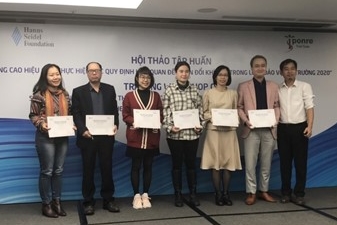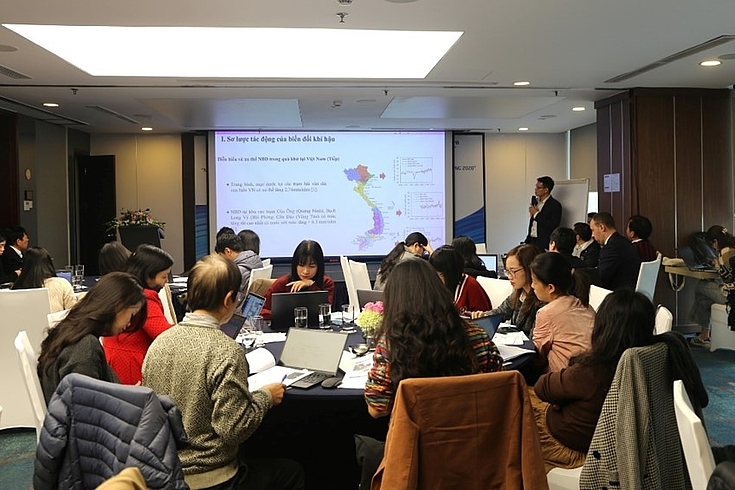Capacity building on climate change regulations
Training Workshop on Climate Change Response Regulations in the Law of Environmental Protection 2020
Lectures and presentations were part of the training modules
HSF
The Law of Environmental Protection (LEP) was passed in 2020 by the National Assembly. In January 2022 a revised version entered into force (Decree 08/2022/ND-CP). The law concentrates, inter alia, on the implementation of circular economy (CE), containment of emissions, extended producer responsibility and climate protection. After passing LEP the Vietnamese government has signed Decree No. 06/2022/NDD-CP on mitigation of greenhouse gas emissions and protection of the ozone layer. In addition, MONRE released Circular No.01/2022/TT-BTMMT which details articles of the LEP on climate change responses.
The overall objective of the event was to provide fundamental knowledge for researchers and partners of ISPONRE about climate change response regulations of LEP. The workshop was structured as a training series with three training modules with the receipt of a training certificate issued by ISPONRE and HSF for every participant at the end of the event.

Participants received a training certificate afterwards
HSF
Part of these modules were lectures and presentations as well as group discussions and exercises. The first module dealt with accessing and mitigating consequences of climate change which endanger Vietnams regions. Hereby it’s an important tool to frame a climate change scenario. The second module was about the assessment of climate change risks, damages and the vulnerability of certain sectors and regions in Vietnam. Training module three was about greenhouse gas inventory practices and requirements of measuring, reporting and verification (MRV) as well as carbon market preparation.
The training modules provided guidelines for representatives of international organisations, several ministries for example MONRE, universities, and research institutes to apply the LEP’s principles and to assess risks and damages of climate change. Such an assessment is helpful to deal with the effects properly.

